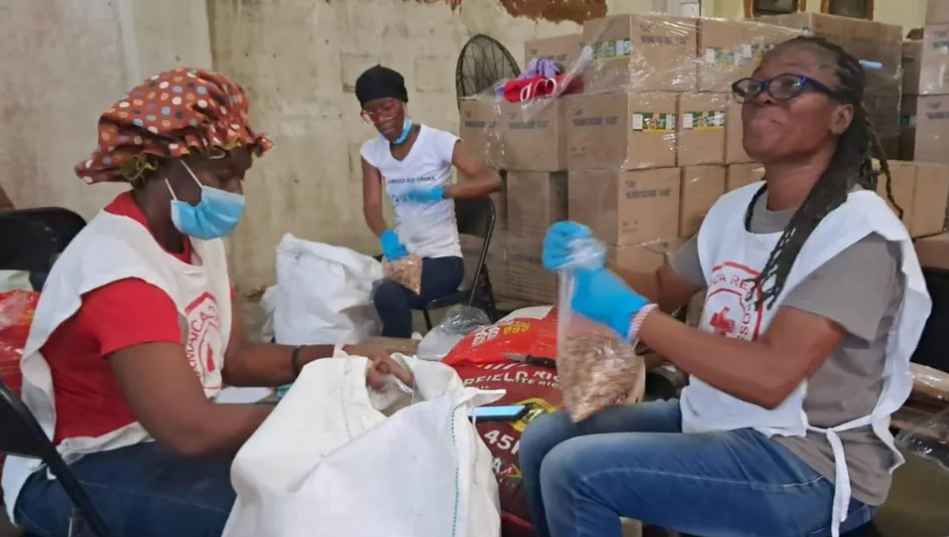The Jamaica Red Cross took early action to protect people across the eight parishes most at risk, mobilising volunteers, pre-positioning emergency supplies and preparing shelters ahead of the storm’s arrival.
They mobilised 400 volunteers and released blankets, cleaning kits, hygiene kits, shelter tool kits, tarpaulins and food packages. A total of 160 tonnes of Red Cross humanitarian aid arrived in Jamaica in the first seven days after Melissa made landfall.
So far, the International Federation of the Red Cross has distributed:
- 3,330 blankets
- 1,023 shelter tool kits
- 2,523 tarpaulins
- 1,026 hygiene kits
- 871 cleaning kits
- 800 mosquito nets
- 225 jerry cans
- 1361 bottles of water
- 137 kitchen sets
- 193 buckets
- 69 mattresses
- 26 stoves
Across Jamaica, 881 shelters were opened. A month later, 109 are still active and the Jamaica Red Cross is directly managing eight, ensuring safe sheltering and essential services for people at risk.
The National Society is coordinating closely with government agencies to ensure aid reaches high-risk communities. Horace Glance, deputy operations manager for the Jamaica Red Cross told ABC News on Sunday 26 October: “We’ve never had such a major hurricane coming across the island, making landfall and its eye passing over us.
“So, the usual things such as landslides, as well as coastal, river and urban flooding, would be expected but it’s going to be a lot more with an event this size in terms of the volume of water... as well as more severe winds than we’ve ever experienced.” Tragically, communities in Jamaica are still recovering from Hurricane Beryl which struck the island in July 2024. Our experience tells us that the aid response will be a protracted one.
The Jamaica Red Cross was on the ground supporting communities long before the storm hit and will continue to be there throughout the recovery process. Red Cross teams in Haiti, the Dominican Republic, Cuba and the Bahamas ramped up preparedness efforts in anticipation of Melissa’s arrival.
- In Cuba, the Cuban Red Cross has 35,000 volunteers active.
- In Haiti, the Jérémie Emergency Operations Centre is working with local authorities.
- In the Dominican Republic, volunteers have carried out rescues and evacuations in flood-affected communities, as well as transporting patients from local hospitals to medical centres in safer areas.
In response to the 2025 hurricane season, the Red Cross network is working to strengthen community resilience in over 28 countries by integrating science and local knowledge to protect communities from the growing risks posed by climate change.
Hundreds of thousands of people have been impacted by the most powerful storm to have hit Jamaica in modern history.











